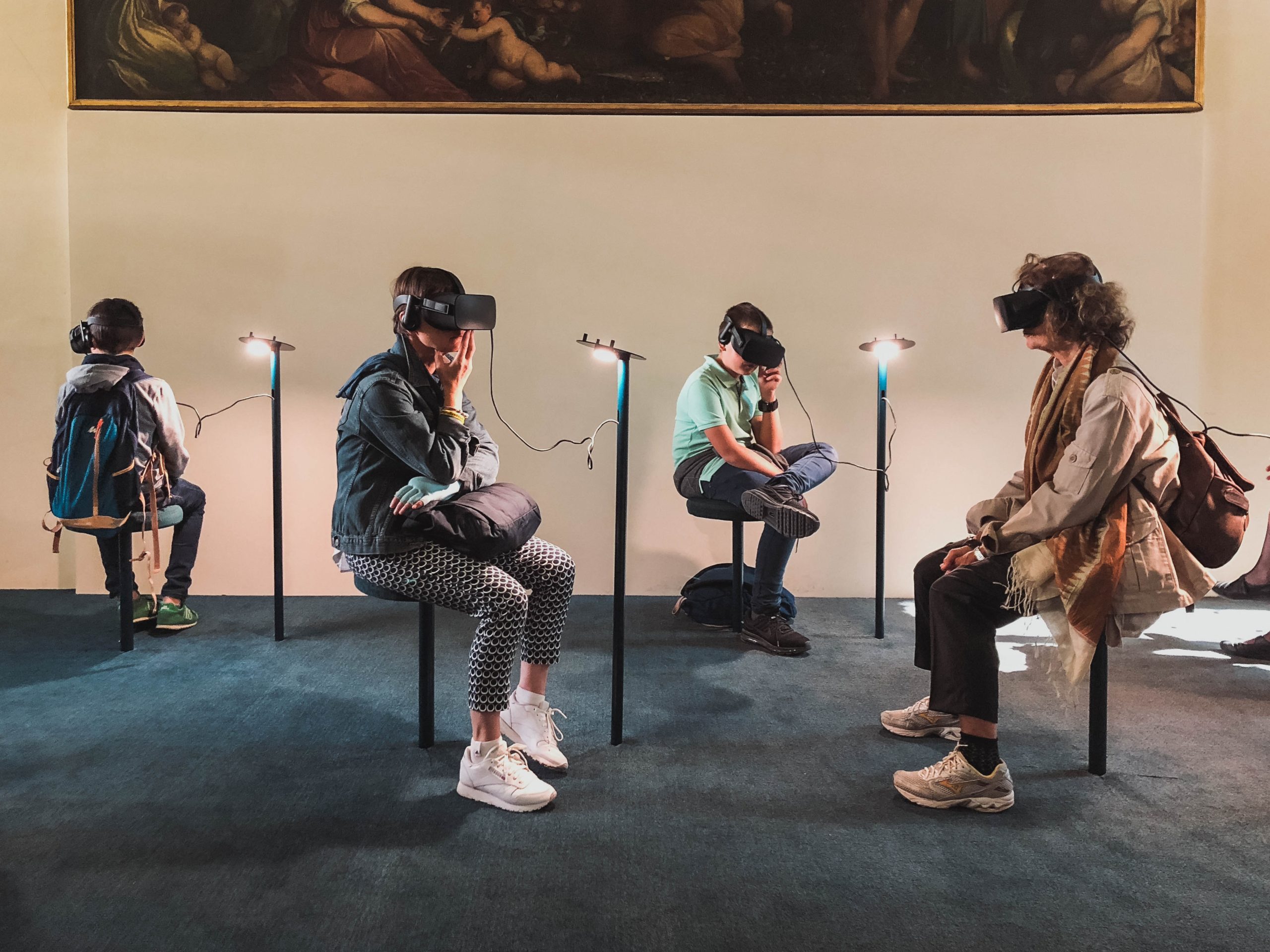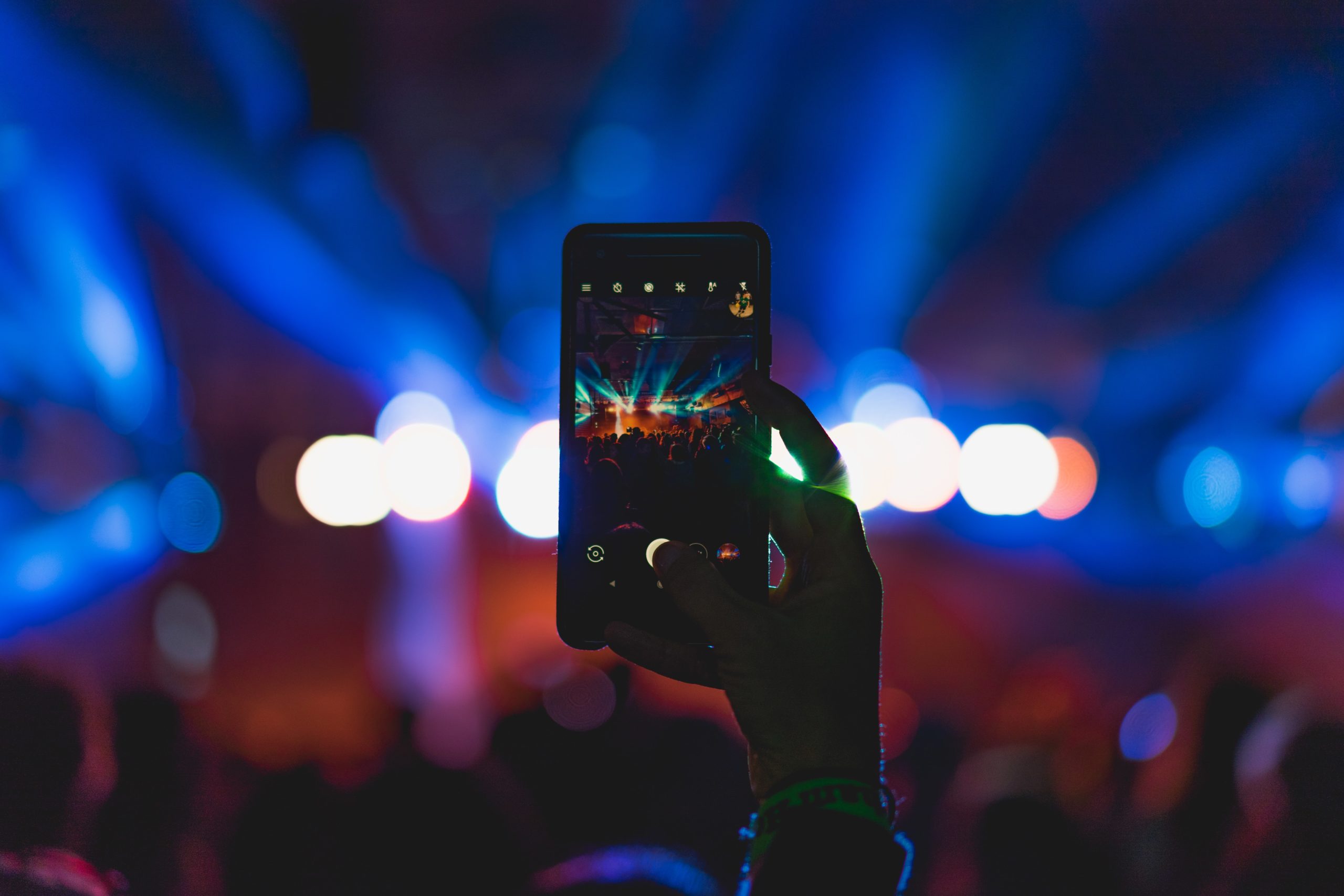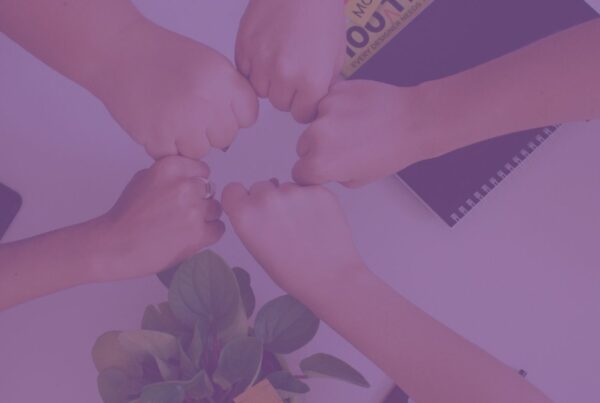This week, the #EventIcons podcast comes with a three-day delay, but we’re so excited about this amazing episode that we couldn’t wait any longer to share it with the world! First, let’s get the most exciting part out of the way. Will is joined by a brand new host: the fabulous and inquisitive Karmen Jericevic, AKA the Event Opportunity Creator at Endless Events. Some of you might remember her from the episode we did with the Endless team about managing virtual fatigue. As she constantly talks directly to event planners, she knows exactly how they think, what they want to know, and what their main pain points are. And alongside her bubbly personality, that makes her an exceptional interviewer!
And then, there’s our iconic guest: Ellis Davis, the Chief of Equation Equilibrium at Endless Events. But even though that’s one impressive title, it barely encompasses all that Ellis is and does. He’s this industry’s knowledgeable visionary, a charismatic yoga teacher, and a delightful conversationalist. Make sure to tune in: you’ll leave inspired, informed, and more exuberant than before!

A Journey From Theater To Events
In case anyone doesn’t know Ellis yet, Will first asks the icon to introduce himself. How did he end up in the events industry? “What led me to the events industry is theater and a little bit of Hollywood,” he says. “I was a nightclub DJ for a million years. In 1997, I reconsidered what I was doing. Hotel audiovisual seemed like a logical choice given my experience in the theater with lighting and sound. And I began with a very well-known hotel chain in 1997. I haven’t looked back since.”
And what brings him among the Einsteins of Events? “What brought me to Endless Events is just my utter good fortune. My values and vision for our industry aligned so closely with Endless’ core values. So, it became my top priority to join the team.”
Human Connection In Events & Technology
Will hands the host’s crown over to Karmen. “As event professionals, we are always trying to keep that human connection in events alive. That’s what events are for: people want to connect,” she says. “Over the course of the years in your career, what are some of the things that you noticed when it comes to human connection in events? How has human connection changed since then?”
Karmen adds that those who are fresh out of college will never experience the events industry as it stood pre-pandemic. “Obviously, in-person events are coming back, but things are a little different now with COVID-19 compliance at events.”
“There’s a really good reason why I chose being on stage,” replies Ellis. “It’s the same reason I teach yoga. I genuinely want to give back to people and give them an opportunity to escape the daily stresses of their lives. As social animals, that human connection is what we all need. I discovered that within the event industry, the exact same need is satisfied. The need is to deliver the benefits of human connection and that’s never going to change.”
However, some things are changing nonetheless. “The change since I began is absolutely dramatic. We began with 35-millimeter projectors and overhead projectors with cute little panels. Then, LCD projectors came along and they had 600 ANSI lumens. Today, 60,000 ANSI lumens are available in the industry. As of the latest, we’re looking at the metaverse: a bigger opportunity for us to meet as close to in-person without actually being in person than we’d ever experienced before.”
 Technology: Good In Most Ways, Bad In Others
Technology: Good In Most Ways, Bad In Others
Karmen wants to know whether technology has made the events industry a better place. “It’s gone both ways,” replies Ellis. “It’s definitely gotten more convenient and hyper-real. We’ve got display resolutions now that your human eye can’t even see. You can’t see 8K, but it’s available to you. We’ve gone way above and beyond in terms of technology. The technicians at in-person events are now carrying a dozen adapters in their pockets. Once upon a time, you needed one. It’s also gotten better in terms of pricing.”
However, the events industry has also gotten busier. “One of the key things we try to do is leverage our strength and our experience so we can take away all that busy stuff and just make it easy for event planners,” he adds.
Attendees Are Hungry & Afraid Of Change
Karmen talks directly with event planners, so she knows them better than most. “Event planners have such a difficult role. When they come to us, they’re nervous. Things are now completely different than they’ve been for decades before. How do we accomplish that human connection in events with all types of audiences and demographics in mind? You have younger generations who are hungry for changes and virtual experiences. However, we also have generations who are not as open to change. They’re scared of virtual and hybrid,” she says.
An important puzzle piece is the attention span. “One of the things that we’ve identified over the last year and a half with all the technology advances is that remote attendees have a very short attention span – as do most adults,” says Ellis. “As a matter of fact, a goldfish has an attention span of eight seconds and the average adult human has an intention span of seven seconds. So this is what we’re facing nowadays.”
Another challenge is virtual audience engagement. “If you cannot keep your remote attendees engaged for more than three minutes, they’re going to check out and won’t come back. So if you look at surveys within the industry, that is one of the biggest pain points. We like to stay aware of it and advise our clients on ways around it.”
Ellis’ advice is pretty straightforward. “When you’re looking for a production or an event management company, vet them. Have a conversation with them. Most event planners are savvy enough to know when they’re being misled or when they’re dealing with the true professional in the industry.”
 Human Connection In Events: Make It Immersive
Human Connection In Events: Make It Immersive
Let’s take a trip down memory lane. “Once upon a time, we funneled people into a meeting room. They would stare tunnel at a screen and hear less than perfect audio. They would sit there captive and listen to every boring moment of it until it was time to go fill out the survey and let everybody know how much they loved or didn’t love the event. Today, we’ve got to engage every single sense. Not just eyes and ears, but everything,” explains Ellis.
What about virtual? Karmen wants to know how can event planners facilitate better connections if they have remote attendees.
“My first tip is two-way communication,” he replies. “There are a couple of really cool algorithms and pieces of software that have been developed over the last year that place the attendees on stage with the keynote speaker in real-time. Additionally, there are all kinds of really cool things being done with robotics nowadays. You can have a robot with a pad as a face circulating through the pre-function space, talking to people. The remote attendee is able to tour the meeting space and actually talk to people. There are all kinds of tools for virtually placing remote attendees and in-person attendees together. And using them is actually quite exciting.”
Not Just Content, Attendees Have Value Too!
“One of the concerns that event planners have is that they have less time,” continues Karmen. “Before, when we were fully in-person, they had all day to execute the program. Now they need to know how to split up this program to make the connection powerful, while still keeping attendees engaged. What should event planners think about when they’re thinking about human connection in events while trying to come up with an agenda?”
Ellis proposes a shift in the mindset. “You don’t have a general session, you have a business theater,” he says. “I worked at Disneyland when I was younger and there’s no one better at sensationalizing and turning the mundane into something amazing. Nowadays, because of our short attention span, we need to engage and involve our audiences in every conceivable way. Have everybody stand up and wave their hands around at regular intervals, perhaps every 15-20 minutes. Whatever it is, make it interactive.”
“We tend to focus on content and the execution of the content because that’s what the attendees are paying for,” adds Karmen. “And we have to make their money’s worth. But at the same time, we want to value the attendees, too. It’s not just about making them feel important – they are important. So we owe them in a sense, and that’s how I’m looking at events.”
 Human Connection In Events: Challenges Moving Forward
Human Connection In Events: Challenges Moving Forward
Next up, Will asks Ellis a complex question. “When it comes to human connection in events, what is the biggest problem that event professionals need to solve?”
“If we are talking about hybrid events and human connection in a face-to-face environment, then it comes back to the attention span thing,” Ellis replies. “We need to give a lot more attention to attention. We need to focus on opportunities for people to actually engage one another.”
Using the model from 15 years ago in today’s event landscape won’t work. “A pharma event for 3,500 people back then might have had 120 breakouts, a monster general session, and a closing gala,” explains Ellis. “In today’s world, it’s going to be an abbreviated general session, followed by 10 to 15 pods that are all themed out where people that haven’t seen each other in a few years can go gather, have fun, and exchange information. And then another team-building.”
Enough With The ‘Go Back To Normal’ Already!
Ellis has another important point to make. “The ‘go back to normal’ mindset drives me out of my mind. There’s no such thing. We’d still live in caves if we wanted to go back to normal! Even if the pandemic was over tomorrow, we’re creating normal in real-time. Now, we have an opportunity to reach a global audience that was never there before. The virtual attendees and the in-person attendees should be getting as close to the same experience as possible. We’re not there yet, but it’s our objective.”
Also, let’s talk about smartphones. “Including people’s smartphones in the event is also a great way to engage either side, the virtual or the in-person. This is part of our future and it’s only going to get better. Technology is set to explode exponentially. If you thought it was crazy over the last 10 years, wait until you see what’s going to happen in the future.”
Final Advice: Don’t Be Afraid To Share Your Budget!
Before Karmen and Will let Ellis go, Karmen wants to know one final thing. “Event profs now have to juggle three different models: hybrid, virtual, and in-person. What would be the best advice that you can give them when they’re planning the event? Which way should they execute it? And please keep in mind that there are budget constraints with these people and they cannot ruthlessly spend money.”
“If you have a budget, you’re already ahead of the game,” Ellis explains. “But the most important thing is understanding what your objectives are before you begin the process. Also, find someone within your network that you can consult with and can give you some quality advice.”
“And don’t be afraid to share your budget. It genuinely helps,” he adds. “For the most part, people in our industry want to help. I want to facilitate a human connection in events and people having memorable experiences.”
Karmen wholeheartedly agrees. “Planners are hesitant to share their budget because they think we’re going to use their entire budget either way. And that’s so not true. If you give us your ideas and your mission, we will try to create that experience for you. If you give some other company the same thing, they will also do their own spiel on it. And still, the budget will end up being approximately the same.”
If you liked this episode and our new host, make sure to check in again in 2022. Big names, big ideas, big questions: we’ll make it our best year so far.










